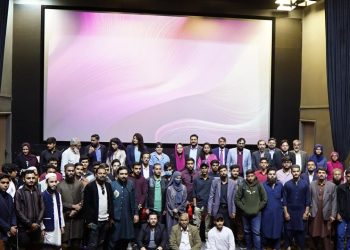Ecosystem restoration means assisting in the recovery of ecosystems that have been degraded or destroyed, as well as conserving the ecosystems that are still intact.
An ecosystem comprises all the living organisms and the interactions among them and with their surroundings in a given place.
“The earth is a fine place and worth fighting for.” (Earnst Hemingway)
In all cases ecological restoration will improve the biological diversity on degraded landscapes, increase the populations and distribution of rare and threatened species, enhance landscape connectivity, increase the availability of environmental goods and services, and contribute to the improvement of human well-being.
The materials from the environment are continuously being used and depleted. If there is now way of restoring these materials or conserving them , then there will be no materials left for our future generations to avail. Biodiversity loss lead to the extinction of 1 million species.Everyday 200 species extinct that shows how alarming the situation is. We are near the sixth mass extinction if the immediate preventive measure are not taken then we have to face the music in the form of climate change like global warming, air pollution(smog,ozone depletion,)noise pollution and water pollution etc
Benefits of Ecosystems:
The benefits of sustainable ecosystems are breathtakingly commendable and meritorious.
“Time spent among trees is never time wasted’’
An ecosystem that has the maximum amount of diversity,is the richest.
Stable climate breathable air
Supplies of water, food and materials of all kinds
Protection from disaster and disease
Natural ecosystems are important for our physical and mental health, and for our identity.
Home to precious wildlife.
Source of wonder and spirituality
Capture vast amounts of climate-heating carbon
Major Threats to Ecosystems:
Eventually we will realize that if we destroy the ecosystem, we destroy ourselves” (Jonas Salk)
Forests are being cleared rivers and lakes polluted
Wetlands and Peat lands drained; hunger for land and resources
Coasts and oceans degraded and over fished
Mountain soils eroded; and farmlands and grass-lands over exploited.
Canalization and mining for sand and gravel degrade them further.
Wetlands are being drained for agriculture, with some 87 per cent lost globally. One in three freshwater species are threatened with extinction obstructed by dams and other infra-structure, which makes it hard for fish and other wildlife to travel.
Types and Methods of Ecosystem Restoration:
Forests actively planting or by removing pressures so that nature can recover on its own it is not about simply planting trees but growing them it should be the right tree, at the right place and the right time.
Re-wilding” is becoming more and more popular in Europe and other places create a buffer zone between the water and sources of pollution.
RIVERS AND LAKES cleaning up the rivers and lakes is quite hectic because one-third of all vertebrate species are living here. Throwing the chemical effluents, plastics, over fishing, and over extraction of water are the major causes of freshwater ecosystem destruction. Stopping or reversing human modifications to natural processes.Regulate access of managing directories to the lakes and rivers.Reduce and treat sewage, stop chemical pollutants, industrial waste or other effluent entering the water use of agricultural chemicals on adjacent land.
TOWNS AND CITIES:Urban areas occupy less than 1 percent of the Earth’s land surface but house more than half of its people. Waste and emissions from industry, traffic and homes pollutes waterways, soils and the air. Unchecked urban sprawl gobbles up more and more wildlife habitat.Green public spaces, plant indigenous trees, and create urban woodland and other wildlife habitats along roads and railways and in public spaces. Rewilding public spaces by mowing grass and cutting down plants less attracts insects, birds, butterflies and even mammals to return to the city.
OCEANS AND COASTS : Oceans and coasts consist of 70 per cent of the Earth. It is the hub of tourism and fisheries and having a tremendous diversity from whales to plankton in habitats from sunlit reefs to polar oceans. Millions of tonnes of our plastic waste,chemicals from industries and oil spillage are harming creatures, including seabirds, turtles and crabs.
FARMLANDS AND GRASSLANDS: Supplying food, fodder, fibre, arable fields and grazing land host a bewildering variety of organisms from bats and birds to beetles and worms as well as considerable tree cover.Invest in nature,trust in diversity, keep grasslands whole, graze sustainably or avoid overgrazing, bring back indigenous species.
MOUNTAINS: Earth’s biodiversity hot spots and supply fresh water to an estimated half of humanity. Restoring mountain ecosystems means considering whole landscapes. Restore forest shields, trees to protect soil, safeguard water flows and guard against natural disasters, such as avalanches, landslides and floods. Limit extraction and excavation, catastrophic consequences for mountains and hillsides. Let ecosystems migrate, farm for resilience.
PEAT LANDS: It covers only 3 percent of the world’s land. Peat lands store nearly 30 per cent of its soil carbon. Dam the drains:, Accelerate recovery, restoration projects implemented throughout the country include: the addition of habitat to Fish and Wildlife Service Refuges, National Parks, state parks and tribal lands; invasive species control; fish passage in streams and rivers; construction of bird nesting islands; wetland, salt marsh, and eel grass intensive farming or weak tenure laws that encourage deforestation. Lakes and coastlines can become polluted because of poor waste management or an industrial accident.
Conclusion:
Ecosystems are complex and highly varied, and their restoration needs careful planning and patient implementation.International,national organisations, NGOS and individaul contribution can play a significant role to cope with the climatic change and natural ecosystem destruction.
Now its time to take action because we are at the verge of 6th mass extinction. Word condemnation speeches are not the solution of the climatic change.
The Climate Crises has already been solved. We already have the facts and solutions. All we have to do is wake up and change (Greta Thunberg)
Exhibition of posters, photos or art showing the beauty of local ecosystems
Online campaign to draw attention to climate change, nature loss writing a letter to your local newspaper. Simply giving nature space to recover buying only sustainable products and changing diets. Raising your voice in support of ecosystem conservation
On Starting on World Environment Day 2021 use these hashtags to support the online International campaign organised by UN Decade on Ecosystem restoration 2021-2030 as Pakistan is going to host the 2021 worldwide organised by United Nations. #GenerationRestoration #WorldEnvironmentDay.


























































